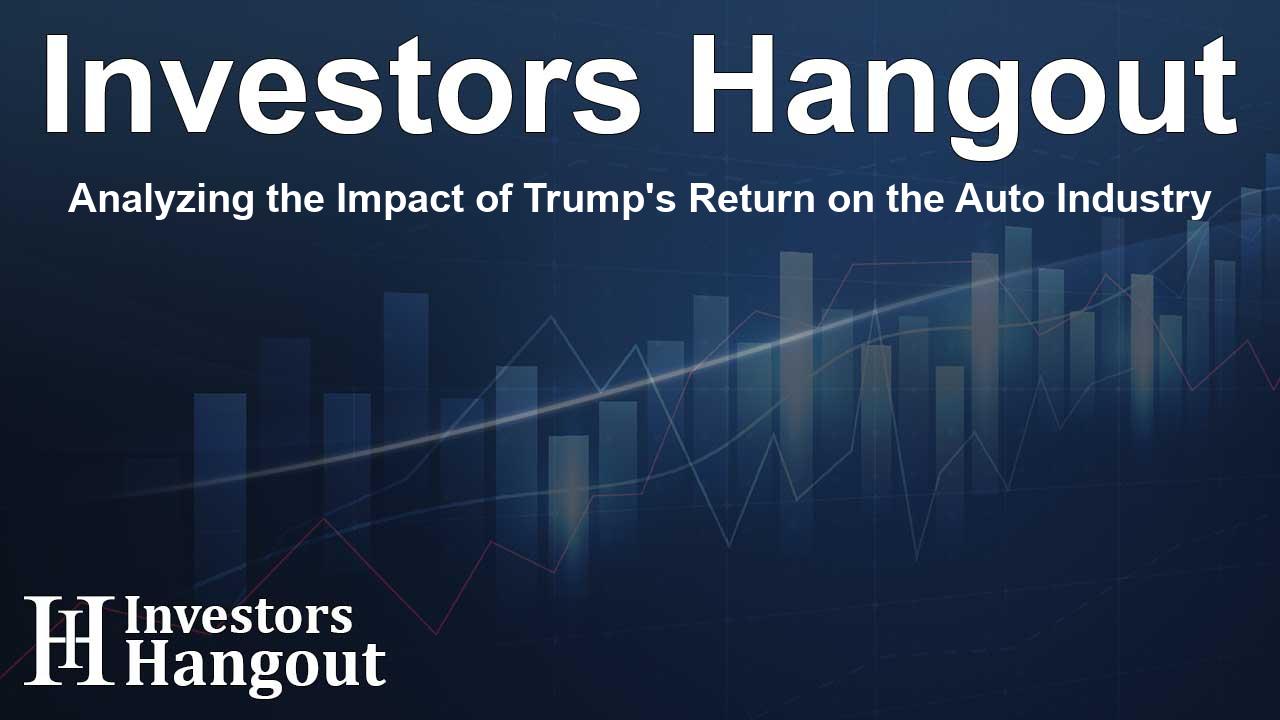Analyzing the Impact of Trump's Return on the Auto Industry

Analyzing the Impact of Trump's Return on the Auto Industry
The return of a former president can shake up various sectors, and the auto industry is no exception. With Donald Trump back in the White House, analysts from Bank of America have noted an atmosphere of anticipated uncertainty for manufacturers and consumers alike.
Executive Order and Initial Reactions
Shortly after resuming his duties, President Trump took decisive action with an Executive Order aimed at revising existing policies related to electric vehicles (EVs). Interestingly, this move reflects a shift back towards traditional vehicle markets, as it seeks to dismantle frameworks that have historically favored EVs.
Policy Changes Ahead
While specific implementations of the new policies are still under discussion, initial comments from Trump have hinted at significant changes to come. Analysts suggest that the anticipated removal of the EV mandate is likely, potentially changing the landscape of vehicle sales once again.
Impact on Electric Vehicle Sales
The ramifications of these changes could see a rise in EV sales in the short term, as the market grapples with the implications of shifting consumer preferences. However, Bank of America has warned that sales might plateau at or below levels seen in recent years due to the uncertainty surrounding the future of EV incentives.
Potential Tariffs: A Double-Edged Sword
Another significant aspect of Trump’s proposed new policies is a potential 25% tariff on vehicle imports from neighboring countries. This measure is intended to combat issues such as illegal drug trafficking but could spell disaster for the auto industry if instated.
Risk Analysis for the Auto Sector
With auto manufacturers like Ford and General Motors producing significant portions of their vehicles in Canada and Mexico, the risk posed by these tariffs cannot be understated. Ford, for instance, creates 15-20% of its vehicles in these countries, while General Motors pushes that figure to between 30-35%. The potential escalation of tariffs could make production in these regions unfeasible, which would have dire consequences on their earnings and operational viability.
Understanding Market Reactions
Market analysts are closely monitoring the situation, noting that without clear policy clarifications, the looming threat of tariffs adds to the uncertainty. The automotive industry, a significant contributor to the economy, is bracing itself for possible price hikes that could result from these proposed changes.
Consequences of Tariff Implementation
Analysts from Bank of America are concerned that imposing a 25% tariff would trigger substantial financial ramifications across the automotive group as a whole. This policy could lead to steep price increases for consumers, ultimately affecting sales volumes and overall market stability.
Future Implications for the Auto Industry
As the situation continues to unfold, the auto industry must plan for a landscape that could shift rapidly due to political decisions. Automakers are likely to need strategic adjustments to mitigate risks associated with potential tariffs and ongoing policy transformations.
Frequently Asked Questions
How does Trump's Executive Order affect electric vehicle sales?
Trump's Executive Order aims to dismantle policies favoring electric vehicles, potentially leading to initial increases in sales, albeit with long-term declines.
What is the proposed tariff on imports?
A proposed 25% tariff on imports from Canada and Mexico could severely impact U.S. auto manufacturers by increasing production costs.
Which companies are at risk due to policy changes?
Ford and General Motors are particularly vulnerable as they rely heavily on production facilities in Canada and Mexico.
What are the expected market consequences of the tariffs?
Implementation of the proposed tariffs could lead to significant price hikes for consumers and reduced competitiveness in the auto market.
How should the auto industry prepare for these changes?
The auto industry needs to adapt by reassessing production strategies and pricing structures in response to the evolving political landscape.
About Investors Hangout
Investors Hangout is a leading online stock forum for financial discussion and learning, offering a wide range of free tools and resources. It draws in traders of all levels, who exchange market knowledge, investigate trading tactics, and keep an eye on industry developments in real time. Featuring financial articles, stock message boards, quotes, charts, company profiles, and live news updates. Through cooperative learning and a wealth of informational resources, it helps users from novices creating their first portfolios to experts honing their techniques. Join Investors Hangout today: https://investorshangout.com/
Disclaimer: The content of this article is solely for general informational purposes only; it does not represent legal, financial, or investment advice. Investors Hangout does not offer financial advice; the author is not a licensed financial advisor. Consult a qualified advisor before making any financial or investment decisions based on this article. The author's interpretation of publicly available data presented here; as a result, they should not be taken as advice to purchase, sell, or hold any securities mentioned or any other investments. If any of the material offered here is inaccurate, please contact us for corrections.